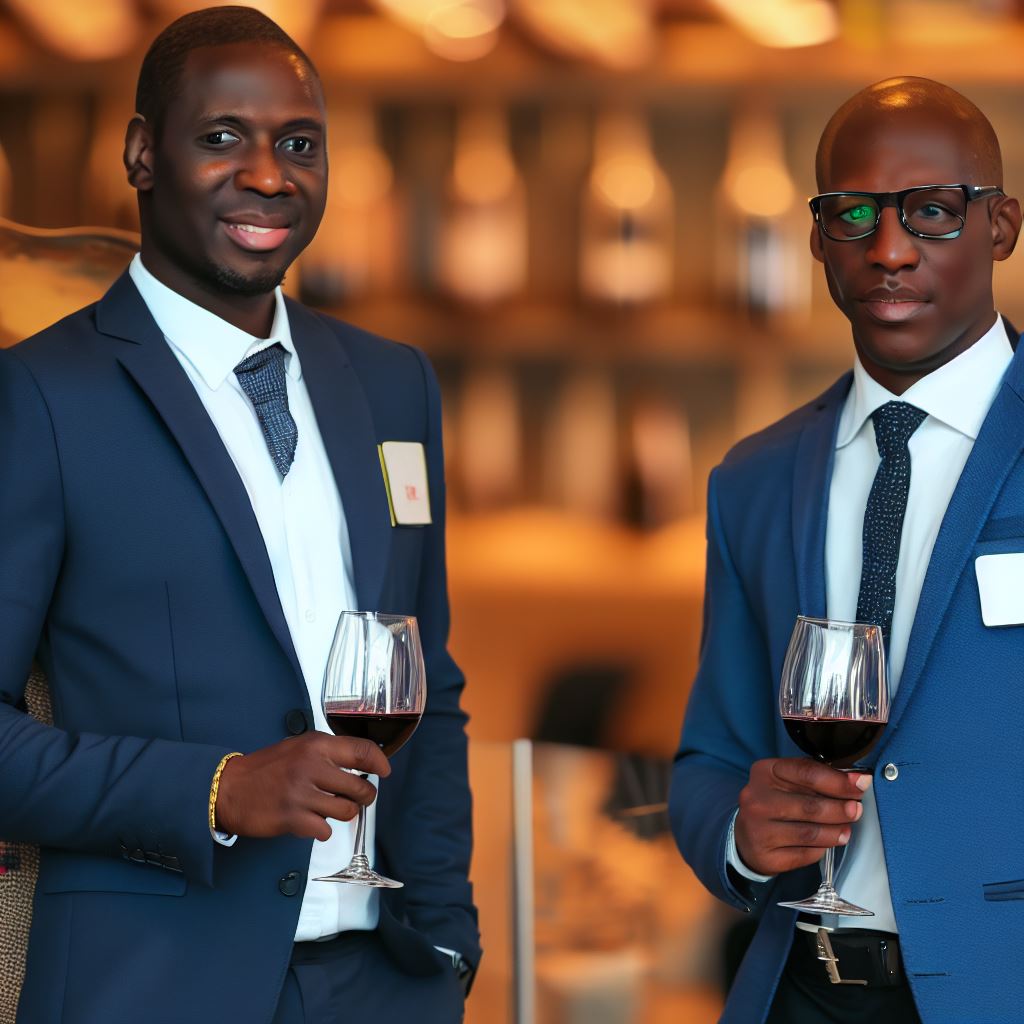Introduction
Nigerian event management is a vibrant tapestry of culture and celebration. Tradition, deeply woven into the fabric of Nigerian society, serves as the heartbeat of these events.
Tradition, in this context, encompasses customs, rituals, and practices passed down through generations.
In Nigeria, it’s not just a set of old-fashioned habits but a dynamic force that shapes every event.
Thesis Statement: The role of tradition in Nigerian event management plays a crucial role in preserving cultural heritage, creating a sense of identity, and fostering community cohesion.
Nigerian event management is a breathtaking fusion of traditional and modern elements, a mesmerizing dance between the past and present. It’s a rich blend of cultural ceremonies, weddings, festivals, and more.
In Nigeria, tradition isn’t a relic of the past; it’s a living, breathing entity. It’s the rhythm that sets the pace for every event.
It’s the colorful attire, the rhythmic music, and the sumptuous cuisine that make Nigerian gatherings unforgettable.
Tradition ensures that Nigerian events are not just superficial gatherings but deeply meaningful experiences.
It connects people to their roots, reminding them of their heritage and values.
Moreover, tradition binds communities together. It fosters a sense of belonging and solidarity.
When Nigerians come together to celebrate, they’re not just reveling in the moment but affirming their shared history and culture.
In the following sections, we will explore the multifaceted role of tradition in Nigerian event management, diving into its impact on cultural preservation, identity formation, and community cohesion.
Preservation of Cultural Heritage
In Nigerian event management, the preservation of cultural heritage plays a crucial role.
Through traditional practices and customs, the essence of Nigerian culture is celebrated and preserved.
The following are some key elements that highlight the significance of tradition in Nigerian events:
Traditional practices and customs in Nigerian event management
- Use of traditional attire: One prominent aspect of Nigerian event management is the use of traditional attire. Traditional clothing showcases the rich cultural diversity and heritage of Nigeria.
- Emphasis on indigenous food and drinks: Nigerian events often prioritize the incorporation of indigenous food and drinks. Traditional cuisine adds a unique flavor and represents the local taste.
- Incorporation of traditional music and dance: Traditional Nigerian music and dance are essential elements in event management. They set the mood, evoke emotions, and promote cultural cohesion.
Importance of preserving cultural practices
- Ensuring the transmission of cultural knowledge to future generations: By incorporating traditional practices into event management, knowledge about Nigerian culture is passed on to younger generations. This helps in preserving ancestral wisdom, values, and heritage.
- Preserving a sense of cultural identity and pride: By showcasing traditional practices, events in Nigeria foster a sense of cultural identity and pride. Participants connect with their roots, strengthening their bond with their cultural background.
- Safeguarding intangible cultural heritage: Traditional practices, such as music, dance, and attire, form part of Nigeria’s intangible cultural heritage. By preserving these practices, Nigerian event management contributes to protecting and safeguarding the country’s cultural legacy.
While it is important to acknowledge the modernization and globalization of event management in Nigeria, the role of tradition must not be undermined.
Traditional practices and customs not only add depth and uniqueness to Nigerian events but also serve as a reminder of the country’s rich cultural history.
Preserving cultural heritage ensures the continuity of traditions, fostering a greater appreciation for Nigerian customs and values.
It is through the integration of tradition in event management that Nigeria can truly embrace its identity and promote cultural unity.
Read: Top Skills Required for Event Managers in Nigeria
Creation of a Sense of Identity
Tradition as a reflection of cultural values and beliefs
In Nigerian event management, tradition plays a vital role in creating a sense of identity.
Traditions serve as reflections of cultural values and beliefs, embodying the essence of a community’s heritage.
Symbolism behind traditional practices
The symbolism behind traditional practices is a cornerstone of Nigerian event management.
Every action and ritual hold deep meaning, connecting individuals to their cultural roots.
These practices serve as a way to communicate and reinforce cultural norms and expectations, ensuring the preservation of the community’s traditions.
Individuals finding belongingness in cultural traditions.
Furthermore, tradition serves as a medium to establish personal and collective identity.
Individuals find a sense of belongingness and purpose when they actively participate in cultural traditions.
By engaging in age-old practices, they reaffirm their place within the community and solidify their connection to their heritage.
Communities bonding through shared experiences
In Nigerian event management, communities come together through shared experiences rooted in tradition.
Whether it is a religious ceremony or a celebratory gathering, the common thread of tradition weaves people together, fostering cohesion and unity.
The collective participation in these events helps to strengthen the bonds between individuals and build a stronger sense of community.
Promotion of a positive self-perception and self-esteem
One of the significant benefits of tradition in Nigerian event management is the promotion of a positive self-perception and self-esteem.
By engaging in cultural traditions, individuals develop a sense of pride in their heritage.
This pride translates into a more positive self-image and a heightened sense of self-worth.
The celebration of tradition fosters a deep appreciation for one’s roots and contributes to an overall positive outlook on personal identity.
Basically, tradition plays a crucial role in Nigerian event management as it creates a sense of identity among individuals and communities.
By embodying cultural values and beliefs, tradition establishes a connection to heritage and serves as a reminder of the importance of preserving cultural practices.
Through the symbolism, individuals find belongingness, and communities bond through shared experiences.
Tradition also contributes to a positive self-perception and self-esteem, further enhancing the overall sense of identity within Nigerian event management.
Read: Understanding the Event Manager Role in Nigeria

Fostering Community Cohesion
Traditional events as communal gatherings
Traditional events hold significant importance in Nigerian society as they play a vital role in fostering community cohesion.
These events, such as weddings, festivals, and other celebratory occasions, act as communal gatherings where people come together to celebrate, socialize, and strengthen their bonds.
One of the key aspects of traditional events is the involvement of extended family and community members.
These events bring together relatives, neighbors, and friends, creating a sense of unity and collective celebration.
The presence of loved ones and the wider community enhances the significance and joy of these events.
Weddings, in particular, highlight the communal nature of traditional events in Nigeria.
They provide an opportunity for families to come together, not only to witness the union of two individuals but also to celebrate the union of two families.
Weddings often last several days, involving various rituals and ceremonies that engage the entire community.
Festivals are another example of traditional events that foster community cohesion.
These festivals, such as the Eyo Festival or the Osun-Osogbo Festival, attract people from all walks of life who gather to celebrate cultural heritage, religious beliefs, and historical significance.
These events are not only festive occasions but also serve as platforms for preserving and passing down cultural traditions and values to future generations.
Strengthening social bonds
In addition to creating a sense of togetherness, traditional events also play a crucial role in strengthening social bonds within the community.
The planning and execution of these events require collaboration and cooperation among community members.
From organizing committees to volunteers, individuals come together to ensure the success of the event. This collective effort builds relationships and encourages a spirit of teamwork among participants.
Furthermore, traditional events serve as a reaffirmation of shared values and principles.
In a rapidly changing world, where globalization and modernization can sometimes erode cultural identities, these events help communities reconnect with their roots.
Through the celebration of customs, rituals, and traditional practices, community members are reminded of their heritage and the importance of preserving their cultural legacy.
Participating in traditional events also enhances individuals’ sense of community belonging.
By actively engaging in these events, people feel a stronger connection to their community and a greater sense of pride in their shared identity.
Traditional events provide a space where individuals can express their cultural heritage, celebrate their unique traditions, and strengthen their ties to their community.
Generally, traditional events in Nigeria play a significant role in fostering community cohesion.
They act as communal gatherings that bring people together, including extended family and community members.
Through collaboration and cooperation, these events strengthen social bonds and reaffirm shared values.
Participating in traditional events enhances individuals’ sense of community belonging and pride in their cultural heritage.
These events are not only a celebration of tradition but also a vital tool for maintaining and promoting Nigerian cultural identity.
Read: Event Manager Salary Trends in Nigeria: A Review
Gain More Insights: Sound Engineers: Impacting Nigeria’s Live Events
Challenges and Adaptations
Balancing tradition with modernization
One of the major challenges in Nigerian event management is finding a balance between preserving tradition and embracing modernization.
With the influence of globalization and Westernization, traditional practices are often at odds with contemporary ideas.
However, event organizers have found ways to adapt and incorporate modern elements without losing the essence of their cultural heritage.
The impact of globalization and Westernization cannot be ignored.
The infiltration of Western culture has brought about changes in various aspects of Nigerian society, including event management.
Traditional events that were once solely focused on religious or cultural practices have now become opportunities to showcase modern trends and styles.
Event organizers have learned to embrace modernization while still paying homage to tradition.
They have found ways to incorporate elements such as technology, contemporary music, and trendy fashion into traditional events.
Traditional weddings, for example, now feature DJs, professional photographers, and elaborate decorations that incorporate both traditional and modern elements.
Generational shifts and changing attitudes
Another challenge faced by Nigerian event managers is the generational shift in attitudes towards tradition.
Younger generations are often more exposed to Western ideals and may question the relevance of certain traditional practices.
However, there is also a growing movement among young Nigerians to embrace and celebrate their cultural heritage.
Event organizers recognize the importance of engaging younger generations and encouraging their active participation in traditional events.
They organize workshops, seminars, and cultural festivals to provide opportunities for young Nigerians to learn about their traditions.
By fostering an understanding and appreciation of their cultural heritage, event organizers hope to ensure the continuity of these traditions for future generations.
Furthermore, social media platforms and online communities have played a significant role in promoting and preserving Nigerian traditions.
Young people are using these platforms to share their experiences, showcase traditional attire, and organize cultural events.
This has helped create a sense of pride and interest in traditional practices among the youth.
Essentially, Nigerian event management faces challenges in balancing tradition with modernization.
The influence of globalization and Westernization has brought about changes in traditional events.
However, event organizers have adapted by incorporating modern elements while still preserving the essence of tradition.
Additionally, the generational shift in attitudes towards tradition has prompted event organizers to encourage active participation and interest among young Nigerians.
Through these adaptations and initiatives, Nigerian event managers strive to maintain the rich cultural heritage of their country.
Read: Starting a Career as an Event Manager in Nigeria
Gain More Insights: Nigeria’s Hair Stylist Unions and Associations
Conclusion
Tradition’s Vital Role
In Nigerian event management, tradition stands as the cornerstone. It weaves a rich tapestry of culture and heritage.
Cultural Heritage Preservation
Tradition ensures that the vibrant mosaic of Nigeria’s cultures remains intact, safeguarding customs, rituals, and values.
Identity Creation
It’s the bedrock for forging identities, allowing Nigerians to connect deeply with their roots and affirm their uniqueness.
Community Cohesion
Tradition binds communities together. Shared customs and practices foster unity, making events a celebration of togetherness.
Final Thoughts
In all, tradition isn’t a relic but a dynamic force. It’s indispensable for cultural richness and diversity.
Maintaining Cultural Richness
Nigeria’s diverse traditions are its treasure trove, enriching every event and making them unforgettable.
Diversity’s Backbone
Preserving tradition ensures that Nigeria’s cultural diversity remains a source of strength and pride.
A Bright Future
As we move forward, let’s treasure and celebrate our traditions, for they are the lifeblood of Nigerian event management.




